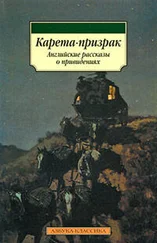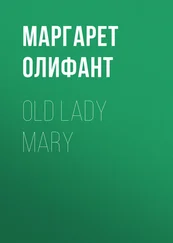Маргарет Олифант - Brownlows
Здесь есть возможность читать онлайн «Маргарет Олифант - Brownlows» — ознакомительный отрывок электронной книги совершенно бесплатно, а после прочтения отрывка купить полную версию. В некоторых случаях можно слушать аудио, скачать через торрент в формате fb2 и присутствует краткое содержание. Жанр: foreign_prose, literature_19, foreign_antique, на английском языке. Описание произведения, (предисловие) а так же отзывы посетителей доступны на портале библиотеки ЛибКат.
- Название:Brownlows
- Автор:
- Жанр:
- Год:неизвестен
- ISBN:нет данных
- Рейтинг книги:5 / 5. Голосов: 1
-
Избранное:Добавить в избранное
- Отзывы:
-
Ваша оценка:
- 100
- 1
- 2
- 3
- 4
- 5
Brownlows: краткое содержание, описание и аннотация
Предлагаем к чтению аннотацию, описание, краткое содержание или предисловие (зависит от того, что написал сам автор книги «Brownlows»). Если вы не нашли необходимую информацию о книге — напишите в комментариях, мы постараемся отыскать её.
Brownlows — читать онлайн ознакомительный отрывок
Ниже представлен текст книги, разбитый по страницам. Система сохранения места последней прочитанной страницы, позволяет с удобством читать онлайн бесплатно книгу «Brownlows», без необходимости каждый раз заново искать на чём Вы остановились. Поставьте закладку, и сможете в любой момент перейти на страницу, на которой закончили чтение.
Интервал:
Закладка:
“Not proper at all,” said Jack; “for we have nobody to take care of us—neither I nor you. My papa is in Masterton at the office, and yours is busy talking to the old women. But quite as proper as listening to all the nonsense Joe Keppel may please to say.”
“I listening to his nonsense!” said Fanny, as a pause occurred in their progress. “I don’t know why you should think so. He said nothing that every body might not hear. And besides, I don’t listen to any body’s nonsense, nor ever did since I was born,” added Fanny, with another little soft glance round into her companion’s face.
“Never do,” said Jack, seizing the chair with renewed vehemence, and rushing all round the Mere with it at a pace which took away Fanny’s breath. When they had reached the same spot again, he came to a standstill to recover his own, and stood leaning upon the chair in which the girl sat, smiling and glowing with the unwonted whirl. “Just like a pair of lovers,” the people said on the Mere, though they were far enough from being lovers. Just at that moment the carrier’s cart came lumbering along noisily upon the hard frosty path. It was on its way then to the place where Sara met it on the road. Inside, under the arched cover, were to be seen the same two faces which Sara afterward saw—the mother’s elderly and gaunt, and full of lines and wrinkles; the sweet face of the girl, with its red lips, and pale cheeks, and lovely eyes. The hood of the red cloak had fallen back a little, and showed the short, curling, almost black hair. A little light came into the young face at the sight of all the people on the ice. As was natural, her eyes fixed first on the group so near the edge—pretty Fanny Hardcastle, and Jack, resting from his fatigue, leaning over her chair. The red lips opened with an innocent smile, and the girl pointed out the scene to her mother, whose face relaxed, too, into that momentary look of feigned interest with which an anxious watcher rewards every exertion or stir of reviving life. “What a pretty, pretty creature!” said Fanny Hardcastle, generously, yet with a little passing pang of annoyance at the interruption. Jack did not make any response. He gazed at the little traveler, without knowing it, as if she had been a creature of another sphere. Pretty! he did not know whether she was pretty or not. What he thought was that he had never before seen such a face; and all the while the wagon lumbered on, and kept going off, until the Mere and its group of people were left behind. And Jack Brownlow got to his post again, as if nothing had happened. He drove Fanny round and round until she grew dizzy, and then he rushed back to the field and cut all kinds of figures, and executed every possible gambol that skates will lend themselves to. But, oddly enough, all the while he could not get it out of his head how strange it must look to go through the world like that in a carrier’s cart. It seemed a sort of new view of life to Jack altogether, and no doubt that was why it attracted him. People who had so little sense of the importance of time, and so great a sense of the importance of money, as to jog along over the whole breadth of the parish in a frosty winter afternoon, by way of saving a few shillings—and one of them so delicate and fragile, with such a face, such soft little rings of dark hair on the forehead, such sweet eyes, such a soft little smile! Jack did not think he had much imagination, yet he could not help picturing to himself how the country must look as they passed through; all the long bare stretches of wood and the houses here and there, and how the Mere must have flashed upon them to brighten up the tedious panorama; and then the ring of the horses’ hoofs on the road, and their breath steaming up into the air, and the crack of the carrier’s whip as he walked beside them. Jack, who dashed along in his dog-cart the quickest way, or rode his horse still faster through the well-known lanes, could not but linger on this imagination with the most curious sense of interest and novelty. “It must be poverty,” he said to himself; and it was all he could do to keep the words from being spoken out loud.
As for Fanny, I am afraid she never thought again of the poor travelers in the carrier’s cart. When the red sunset clouds were gathering in the sky, her father, who was very tender of her, drew her hand within his arm, and took her home. “You have had enough of it,” he said, though she did not think so; and when they turned their backs on the village, and took the path toward the rectory under the bare elm-trees, which stood like pillars of ebony in a golden palace against the setting sun, Mr. Hardcastle added a little word of warning. “My love,” he said—for he too, like Mr. Brownlow, thought there was nobody like his child—“you must not put nonsense into these young fellows heads.”
“ I put nonsense into their heads,” cried Fanny, feeling, with a slight thrill of self-abasement, that probably it was quite the other way.
“Not a doubt about it,” said the rector; “and so far as Jack Brownlow is concerned, I don’t know that I should object much; but I don’t want to lose my little girl yet awhile; I don’t know what I should do all alone in the house.”
“Oh papa, I will never leave you,” cried Fanny. She meant it, and even, which is more, believed it for the moment. Was he not more to her than all the young men that had ever been dreamed of? But yet it was rather agreeable to Fanny to think that she was suspected of putting nonsense into their heads. She liked the imputation, as indeed most people do, both men and women; and she liked the position—the only lady, with all that was most attractive in the parish at her feet; for Sir Charles Hetherton was considered by most people as very far from bright. And then the recollection of her rapid whirl across the ice came over her like a warm glow of pleasant recollection as she dressed for the evening. It would be nice to have them come in, to talk it all over after dinner—very nice to have little parties, like the last night’s party at Brownlows; and notwithstanding her devotion to her father, after they had dined, and she had gone alone into the drawing-room, Fanny could not but find it dull. There was neither girl to gossip with, nor man into whose head it would be any satisfaction to put nonsense, near the rectory, from whom a familiar visit might be expected; and after the day’s amusement, the silent evening, with papa down stairs enjoying his after-dinner doze in his chair was far from lively. But it did not occur to Fanny to frame any conjectures upon the two travelers who had looked momentarily out upon her from the carrier’s cart.
As for Jack Brownlow, he had a tolerably long walk before him. In summer he would have crossed the park, which much reduced the distance, but, in the dark and through the snow, he thought it expedient to keep the high-road, which was a long way round. He went off very briskly, with the straps of his skates over his shoulders, whistling occasionally, but not from want of thought. Indeed, he had a great many things to think of—the ice itself for one thing, and the pleasant run he had given little Fanny, and the contemptible vacillations of that fellow Keppel from one pretty girl to another, and the office and his work, and a rather curious case which had lately come under his hands. All this occupied him as he went home, while the sunset skies gradually faded. He passed from one thing to another with an unfettered mind, and more than once there just glanced across his thoughts a momentary wonder, where would the carrier’s cart be now? Had it got home yet, delivered all its parcels, and deposited its passengers? Had it called at Brownlows to leave his cigars, which ought to have arrived a week ago? That poor little pale face—how tired the little creature must be! and how cold! and then the mother. He would never have thought of them again but for that curious way of moving about, of all ways in the world, among the parcels in the carrier’s cart.
Читать дальшеИнтервал:
Закладка:
Похожие книги на «Brownlows»
Представляем Вашему вниманию похожие книги на «Brownlows» списком для выбора. Мы отобрали схожую по названию и смыслу литературу в надежде предоставить читателям больше вариантов отыскать новые, интересные, ещё непрочитанные произведения.
Обсуждение, отзывы о книге «Brownlows» и просто собственные мнения читателей. Оставьте ваши комментарии, напишите, что Вы думаете о произведении, его смысле или главных героях. Укажите что конкретно понравилось, а что нет, и почему Вы так считаете.












